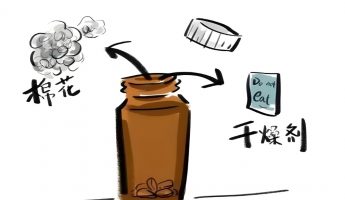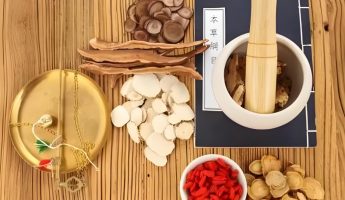Traditional Chinese medicine for health preservation indeed contains rich wisdom and tricks, which can be summarized in six words: Shun, Jing, Xiu, Tiao, Bu, and Gu. Below, I will explain the meanings of these six words one by one and their applications in traditional Chinese medicine health preservation.
- Shun
‘Shun’ means conforming to nature, emphasizing the importance of ‘harmony between heaven and man’ in health preservation, and adjusting diet, daily life, clothing, food, housing, and transportation according to seasonal changes. For example, in spring, everything grows and is suitable for nourishing the liver and yang; Summer is the season of growth, which focuses on nourishing the heart. One should stay up late and wake up early, avoid getting angry, and pay attention to nourishing the spleen and dispelling dampness; Autumn is the season of harvest, it is necessary to nourish the lungs and yin, lie down early and wake up early, and have a peaceful mood to prevent lung injury; In winter, attention should be paid to nourishing the body, kidneys, and yin. It is advisable to bask in the sun and go to bed early and wake up late. This natural way of health preservation contributes to the harmonious coexistence between the human body and the natural environment, achieving the goal of preventing diseases and strengthening the body. - Jing
‘Tranquility’ refers to calming the mind, using methods such as sitting quietly, closing the eyes, and calming the mind to reduce unnecessary consumption, especially the consumption of ‘qi’. Traditional Chinese medicine believes that when the heart is calm, the mind is at ease, and when the mind is at ease, illness cannot arise. The Yellow Emperor’s Inner Canon states: “Tranquility and emptiness, the true qi follows from it, the spirit is guarded internally, and illness is always peaceful.” Therefore, maintaining inner peace and tranquility is one of the important principles of traditional Chinese medicine for health preservation. - Xiu
‘Xiu’ refers to self-cultivation and character building, emphasizing the importance of accumulating virtues and doing good deeds in daily life, being open-minded and magnanimous, and living in harmony with others to reduce troubles and bring joy. Traditional Chinese medicine believes that a happy mood helps to promote the harmony of qi and blood, as well as the peace of the organs, thus achieving the goal of health and longevity. In the Book of Changes, there is also a saying that goes’ a family that accumulates good deeds will surely have surplus blessings’, which means that people who do good deeds and accumulate virtue in their daily lives often reap health, happiness, and longevity. - Tiao
‘Tiao’ refers to the practice of breathing, exhaling, and inhaling to regulate the body’s qi system. Traditional Chinese Medicine believes that the lungs regulate the flow of qi and facilitate breathing. By regulating breathing, the entire body’s airways can be unobstructed, promoting the exchange of internal and external qi, and regulating the movement and excretion of fluids in the body. Therefore, doing deep, slow, and even breathing exercises, such as “dantian breath”, can help regulate the body’s qi and enhance physical fitness. - Bu
‘Bu’ refers to nourishing, emphasizing the use of appropriate medicinal and dietary supplements according to one’s constitution. Traditional Chinese medicine believes that the human body can be divided into cold, heat, deficiency, and excess, so nourishing needs to vary from person to person. For example, people with qi deficiency can choose qi tonics such as ginseng, ginseng, astragalus, as well as staple foods such as chicken soup; People with blood deficiency can choose rehmannia glutinosa, angelica sinensis, ass hide glue and other blood tonics as well as jujube, pig liver and other foods; People with yin deficiency can choose yin tonifying medicines such as ginseng and Ophiopogon japonicus, as well as foods such as duck meat and sea cucumber; People with yang deficiency can choose tonics such as deer antler and psoralen, as well as foods such as beef and mutton, chives, etc. Reasonable nourishment can enhance physical fitness and prevent diseases. - Gu
‘Solid’ includes three aspects: solid essence, solid gas, and solid spirit. Strengthening essence means protecting kidney qi. It is necessary to control sexual desire and consume foods that nourish kidney essence, such as yam, Polygonatum sibiricum, wolfberry, etc; Solid energy refers to reducing gas consumption, requiring less talking, more sun exposure, less staying up late, and more aerobic exercise to supplement yang energy; Strengthening the mind means nurturing the seven emotions (joy, anger, worry, thought, sadness, fear, and shock), maintaining emotional stability to reduce physical harm. By solidifying essence, qi, and spirit, one can maintain the stability and strength of the body.
In summary, the six character formula of traditional Chinese medicine for health preservation, which includes “smoothness, tranquility, cultivation, adjustment, supplementation, and solidification,” covers multiple aspects such as conforming to nature, calming the mind and nourishing the body, cultivating oneself and morality, regulating breathing, reasonable nourishment, and strengthening the foundation and nourishing the essence. If people can truly understand and practice these six character formulas, they will surely make their bodies stronger, reduce the occurrence of diseases, and achieve the effect of prolonging life.



